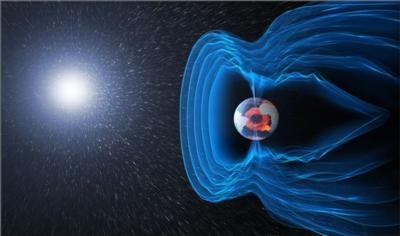Fri, Aug 18, 2017
Calls For Proposals For Experiments To Be Conducted In Darmstadt, Germany
Cosmic radiation is considered the main health hazard to human spaceflight and space exploration of the Moon, Mars and beyond, which is why ESA has made cosmic radiation a focus of its research program.

Radiation poses a risk to the human body in the form of cancer, central nervous system disorders, cardiovascular problems and tissue degeneration. Beyond Earth’s magnetic field, its full force is a barrier to human exploration of the Solar System. “Crewmembers may be exposed to different doses and qualities of radiation, threatening life quality and individual survivability, thereby disrupting mission success,” explains Jennifer Ngo-Anh, head of Human Research at ESA. “This creates a need for investigations into biological effects of space radiation, in order to allow more accurate risk assessments, which in turn leads to more accurate planning of countermeasures.”
Spacecraft and spacesuits are lined with protective materials that reduce radiation exposure to within acceptable limits. The challenge is in defining this limit for spaceflight beyond low Earth orbit. Researchers need to understand the full biological effects of cosmic rays to accurately calculate how much cosmic radiation exposure humans can safely withstand.
To address these issues, ESA has announced an opportunity to investigate the biological effects of space radiation at the GSI Helmholtz Center for Heavy Ion Research. Located in Darmstadt, Germany, GSI has collaborated with ESA on the use of its high-energy accelerator since 2007.
Proposed experiments should contribute to improving the risk assessments of cosmic radiation exposure or to studying countermeasures on cells to allow safe and stable human space exploration.
Results of such experiments will also have application for life on Earth: though well protected, humans are not altogether immune from radiation exposure. Data from these studies inform us of risks of radiation exposure on Earth as well as improve radiation therapy for cancer treatment.
(Source: ESA news release. Image provided)
More News
Airport Rotating Beacon A visual NAVAID operated at many airports. At civil airports, alternating white and green flashes indicate the location of the airport. At military airports>[...]
Aero Linx: Fly for the Culture Fly For the Culture, Inc. is a 501(c)(3) non-profit organization that serves young people interested in pursuing professions in the aviation industry>[...]
Klyde Is Having Some Issues Comprehending The Fed's Priorities FMI: www.klydemorris.com>[...]
Also: Viasat-uAvionix, UL94 Fuel Investigation, AF Materiel Command, NTSB Safety Alert Norges Luftsportforbund chose Aura Aero's little 2-seater in electric trim for their next gli>[...]
Also: EP Systems' Battery, Boeing SAF, Repeat TBM 960 Order, Japan Coast Guard H225 Buy Despite nearly 100 complaints totaling millions of dollars of potential fraud, combined with>[...]
 ANN's Daily Aero-Term (04.25.24): Airport Rotating Beacon
ANN's Daily Aero-Term (04.25.24): Airport Rotating Beacon ANN's Daily Aero-Linx (04.25.24)
ANN's Daily Aero-Linx (04.25.24) Klyde Morris (04.22.24)
Klyde Morris (04.22.24) Airborne 04.24.24: INTEGRAL E, Elixir USA, M700 RVSM
Airborne 04.24.24: INTEGRAL E, Elixir USA, M700 RVSM Airborne 04.22.24: Rotor X Worsens, Airport Fees 4 FNB?, USMC Drone Pilot
Airborne 04.22.24: Rotor X Worsens, Airport Fees 4 FNB?, USMC Drone Pilot



